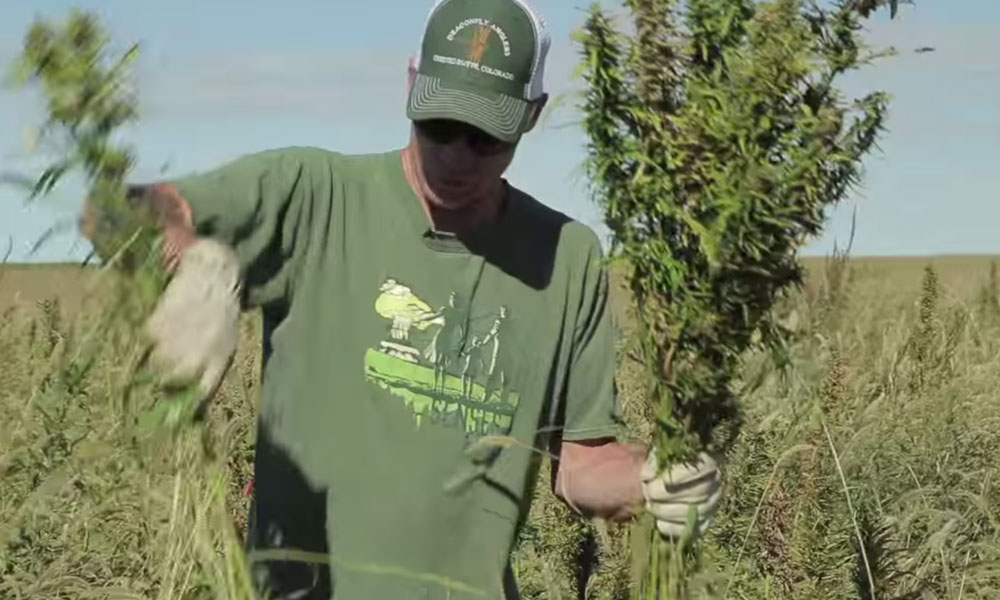
Hemp Industry Brings Momentum to Annual History Week
Riding a wave of recent legislative success, the Hemp Industries Association hopes to turn the tide even further in its favor with its fifth annual Hemp History Week.
For decades, industrial hemp was off the market in the United States. Until last October, that is.
That’s when Ryan Loflin, a Colorado farmer, decided to grow 55 acres of the once-prevalent crop, whose regulatory status has long been lumped in with its sister plant marijuana. A ballot measure legalized both plants in Colorado in 2012.
Loflin’s successful harvest, highlighted in the video above, is the latest piece of history to be reflected by Hemp History Week, an annual event that highlights the benefits of industrial hemp in an effort to encourage its legalization nationwide.
The fifth edition of the event, taking place this week, is the Hemp Industries Association’s attempt to remind the public that the plant was once legally farmed in the U.S.—including, the association notes, by former presidents George Washington, Thomas Jefferson, and John Adams—but has fallen by the wayside due to restrictive laws.
The association’s hope? That eventually hemp will become a cash crop again.
Legal to Import
While the hemp industry continues to grow in the U.S.—with sales of hemp products reaching $581 million last year—nearly all of this growth comes from products imported from Canada and other countries due to restrictions on domestic cultivation of hemp. (The crop is legal to import, with restrictions.)
The plant, which contains a microscopic amount of THC compared to marijuana, is used to produce a variety of products, including food and clothing. Much of the infrastructure needed to bring it into the U.S. already exists, according to HIA President Anndrea Hermann.
Canadian hemp crops, she says, could easily move into North Dakota and other border states, and the equipment used for farming other crops could be used to cultivate hemp.
“Equipment-wise, it’s all there. Drying vents [and] seed cleaners—that equipment is very turn-key,” she told Voactiv.
Momentum Rising
There’s new openness to the hemp industry at the federal level as well. The Agricultural Act of 2014, which was signed into law in February, contains an amendment that allows for the launch of pilot programs in states that have passed laws allowing industrial hemp research.
But some programs have gotten off to a bumpy start. In Kentucky, the Drug Enforcement Administration seized seeds that were to be used in a pilot program at the University of Kentucky. State officials objected and filed a lawsuit, but late last month the two sides came to an agreement and the state was allowed to plant its crop.
Despite that trouble, industrial hemp could be at a tipping point, according to Eric Steenstra, president of the Vote Hemp advocacy group.
“This is a crucial time in the movement to bring hemp farming back to the United States,” he said in a news release. “Through the pilot programs in Colorado and Kentucky, we’re regaining the knowledge of how to best grow the crop, how to process it, develop the infrastructure needed for manufacturing, and collecting data on the booming hemp market to prepare farmers and businesses for the commercial hemp industry poised to take off in the U.S.”
A clip from a Hemp History Week promotional video, showing a hemp harvest in Colorado last year. (YouTube screenshot)






Comments